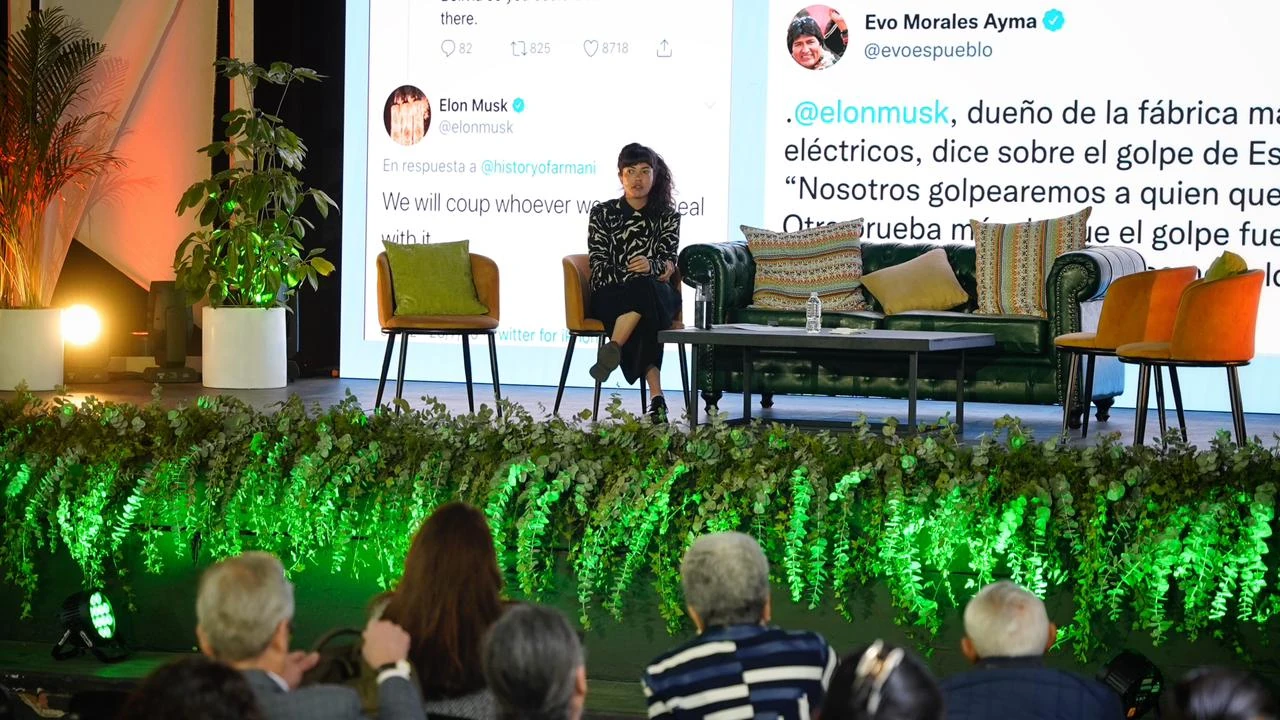He considered that information and communication technologies (ICT), such as artificial intelligence and smart cell phones, not only provide great benefits to humanity, but also present equal or greater environmental and social challenges. Sophia Trejo, Iartificial intelligence ethics researcher at the Barcelona Supercomputing Center, during a Forbes talk on “Artificial Intelligence and Sustainability” within the framework. Forbes Green Economy and Sustainable Development Forum 2023.
From Casa del Lago in Mexico City’s Chapultepec forest, the academic highlighted how artificial intelligence and information technology are causing tensions with increasing demand for natural resources such as minerals, rare earths and water, as well as an increase in electronic waste. It is implemented irregularly and with serious environmental and health consequences for people; Also, the rise of the digital divide, technology dependency (mainly from the Global South) and negative impacts on human rights.
Regarding the extraction of natural resources for the operation of the entire technology sector, Sofia Trejo drew attention to the demand for minerals such as cobalt used in the production of smart cell phones, one of the most used devices in the world. The world and through it we often interact with artificial intelligence systems.
Regarding the rare earths, he said they are the 17 elements of the periodic table that are mainly dominated by China, Russia, Vietnam and Brazil. Demand for these resources creates environmental pressures that affect global sustainability. He noted that lithium is an important mineral for making rechargeable batteries.
Trejo warned that the main consumer of this mineral is Tesla, which has more than 28,000 tons of lithium per year, which is half of the world’s consumption. The mineral is mainly extracted from the Lithium Triangle: Bolivia, Argentina and Chile, although it is to a lesser extent in Mexico.
The researcher warned that lithium mining could lead to environmental impacts such as deforestation, water and air pollution, loss of native land cover, forced migration and in extreme cases new forms of slavery.
A problem compounding the environmental impacts of technology is the rapid obsolescence of devices. In the United States and the European Union, it is estimated that people replace cell phones every 2 years, so they may consume 30 unrecycled phones in their lifetime.
As 11% of ICT-related greenhouse gas (GHG) emissions correspond to cell phones, this is an important consideration.
Another piece of information shared by Sofia Trejo during her Forbes speech to measure the environmental impact of the tech industry is that the world’s most popular cryptocurrency, Bitcoin, is estimated to use more energy per year than Argentina, where 45 million people live. Or, to keep the video for YouTube’s most-watched song “Despacito” online, it required the power of 40,000 homes in the United States.
Sofía Trejo shared that the ICT sector could contribute 23% of total GHG emissions by 2030. Of this percentage, nearly half can come from data centers, the infrastructure that supports all digital life in the world. For example, in 2014, almost a decade ago and with less digitization than today, it was estimated that data centers in the US consumed 100 billion liters of water to cool equipment.
Follow Forbes Mexico for information on business and current affairs
The most current reality is related to ChatGPT, an artificial intelligence chatbot created by OpenAI that has revolutionized the race to master this technology. Sofia Trejo points out that maintaining and training a chatbot emits 503 tons of CO2, far greater than the 63 tons of CO2 a car emits over its entire useful life.
For this reason, the researcher emphasized that sustainability practices must prevail to avoid a backlash in the technology sector: the benefits of achieving sustainable development goals through artificial intelligence and technology will not lead companies to over-exploit minerals. To develop more technologies and devices to solve the world’s environmental problems.
Want to stay informed with Google News? Follow our showcase for the best stories

